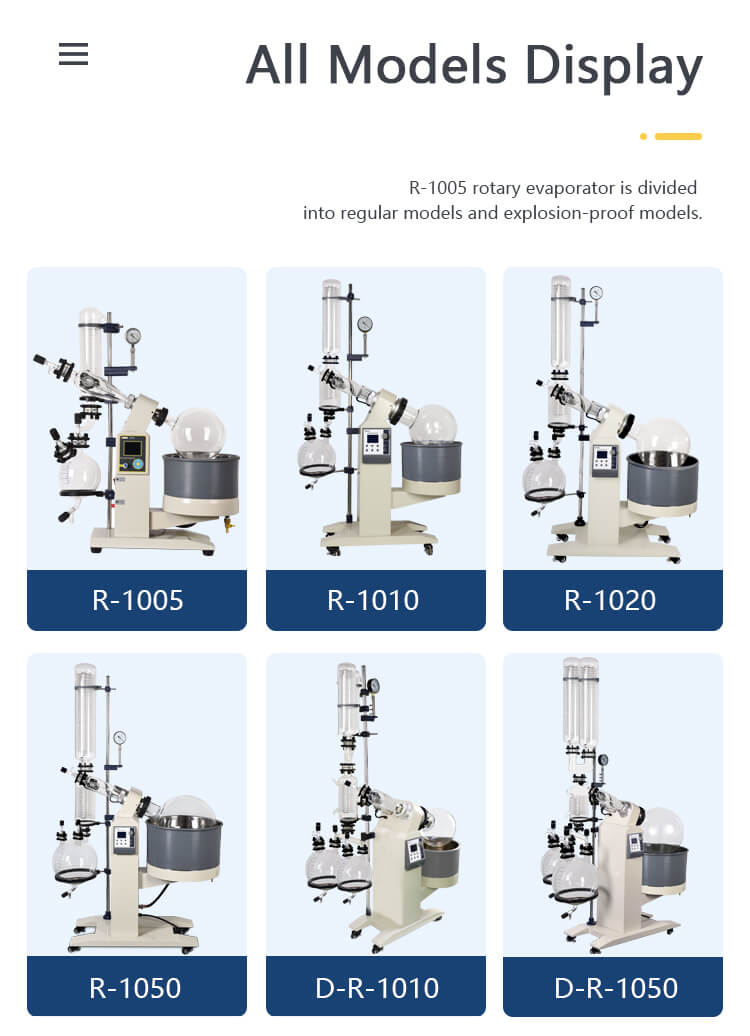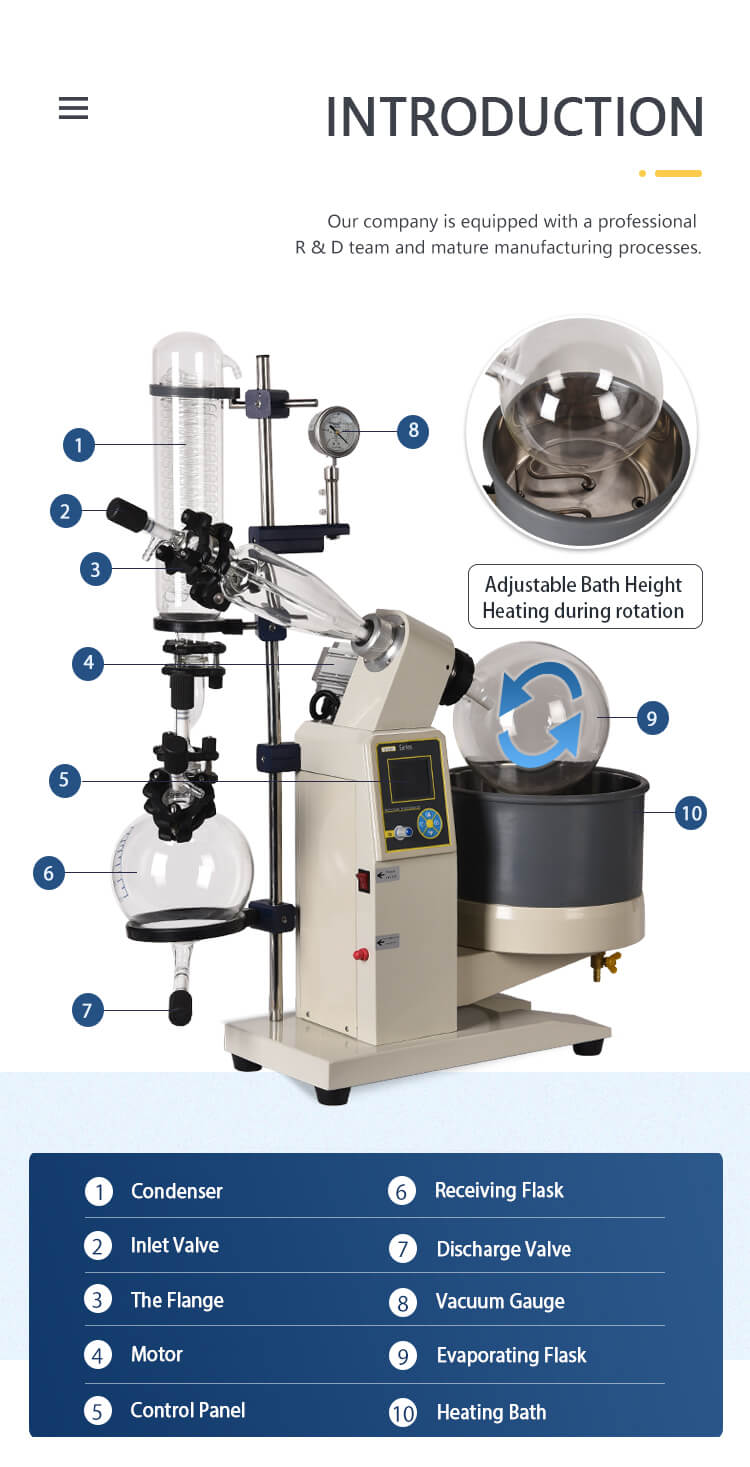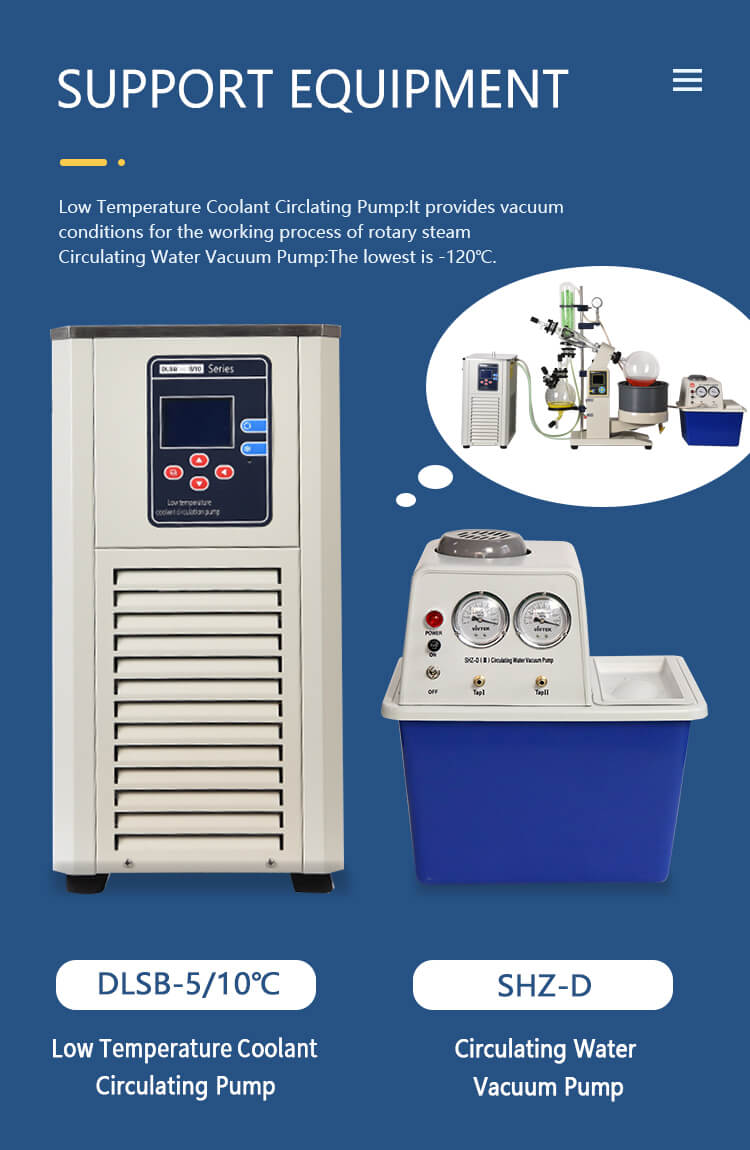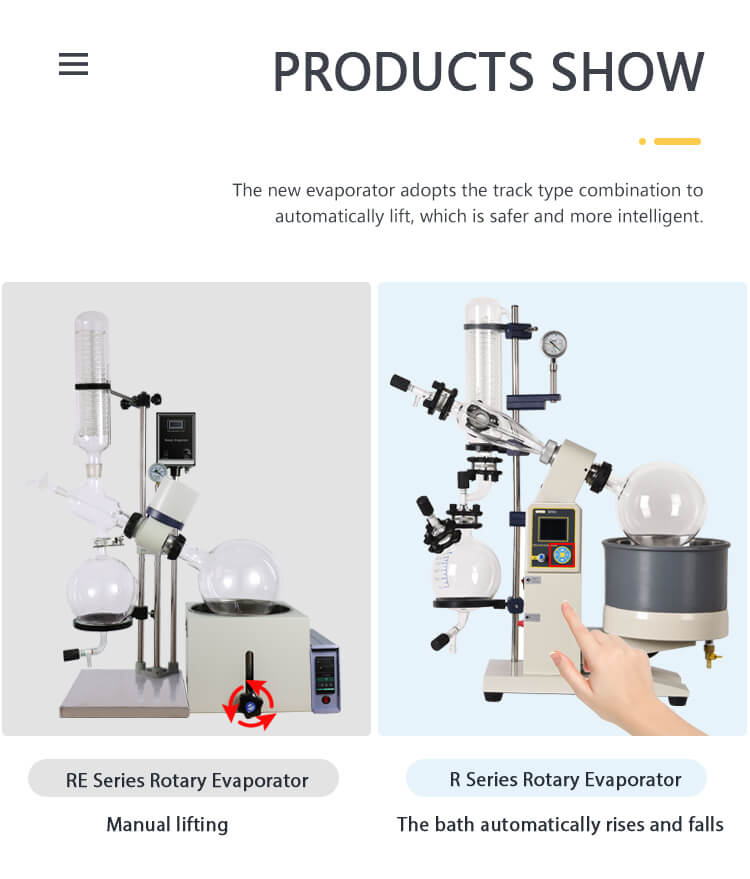Rotary Evaporator Machine - With Electric Lift
Welcome to the world of rotary evaporator machines, where science meets innovation! Join us on an exciting exploration as we uncover the inner workings, applications, and benefits of these versatile laboratory instruments. Whether you're a seasoned researcher or an aspiring scientist, let's embark on this educational journey together.
What is a Rotary Evaporator Machine?
Let's start with the basics. A rotary evaporator machine, also known as a rotovap or rotavap, is a sophisticated piece of laboratory equipment used for efficient evaporation of solvents from liquid samples. Utilizing principles of vacuum distillation, rotary evaporators are renowned for their ability to expedite evaporation processes while maintaining sample integrity.

🔍 How do you think rotary evaporator machines differ from traditional evaporation techniques? Share your insights in the comments below!
Features and Functions:
Now, let's delve into the key features and functions of rotary evaporator machines:
1. Rotating Flask: At the heart of the rotary evaporator is a rotating flask, typically made of glass, which contains the liquid sample to be evaporated. The rotational motion enhances surface area exposure, facilitating rapid evaporation.
2. Vacuum System: Rotary evaporators employ vacuum systems to reduce the pressure within the evaporation flask, lowering the boiling point of the solvent and accelerating evaporation without the need for excessive heating.
3. Heating Bath: A heating bath or water bath provides precise temperature control, ensuring gentle heating of the sample while preventing thermal degradation or overheating.

💡 Share your experiences using ethanol evaporator in your laboratory work. What applications have you found most beneficial?
Applications of Rotary Evaporator Machine:
Rotary evaporator machines find wide-ranging applications across various industries and research disciplines:
1. Chemistry: In chemistry laboratories, rotary evaporators are indispensable for solvent removal, concentration of extracts, and purification of organic compounds, enabling researchers to streamline synthesis and analysis processes.
2. Pharmaceutical Research: Pharmaceutical scientists utilize rotary evaporators for drug formulation, solvent recovery, and preparation of concentrated solutions, contributing to drug discovery and development efforts.
3. Environmental Analysis: Environmental laboratories employ rotary evaporators for sample preparation in environmental monitoring, water analysis, and pollutant detection, facilitating accurate and efficient sample processing.

🌟 Curious about specific applications of rotary evaporator machines in specialized fields or industries? Let us know your interests, and we'll explore further in upcoming articles!
Benefits of Rotary Evaporator Machine:
The benefits of rotary evaporator machines are manifold:
1. Time Efficiency: By harnessing vacuum distillation principles, rotary evaporators accelerate evaporation processes, significantly reducing processing times and enhancing laboratory productivity.
2. Sample Integrity: Gentle heating and controlled evaporation conditions preserve sample integrity, minimizing the risk of sample degradation or loss of volatile compounds.
3. Versatility: From solvent recovery and concentration to extraction and distillation, rotary evaporators offer versatile functionality, accommodating diverse laboratory applications with ease.

Rotary evaporator machines represent a cornerstone of modern laboratory practice, offering efficient, precise, and versatile solutions for solvent evaporation and sample preparation. As research and technology continue to evolve, rotary evaporators will remain invaluable tools for scientific discovery and innovation.
🔬 We hope you've enjoyed this exploration of rotary evaporator machines! If you have any questions, feedback, or topics you'd like us to explore in future articles, feel free to reach out. Happy experimenting!


